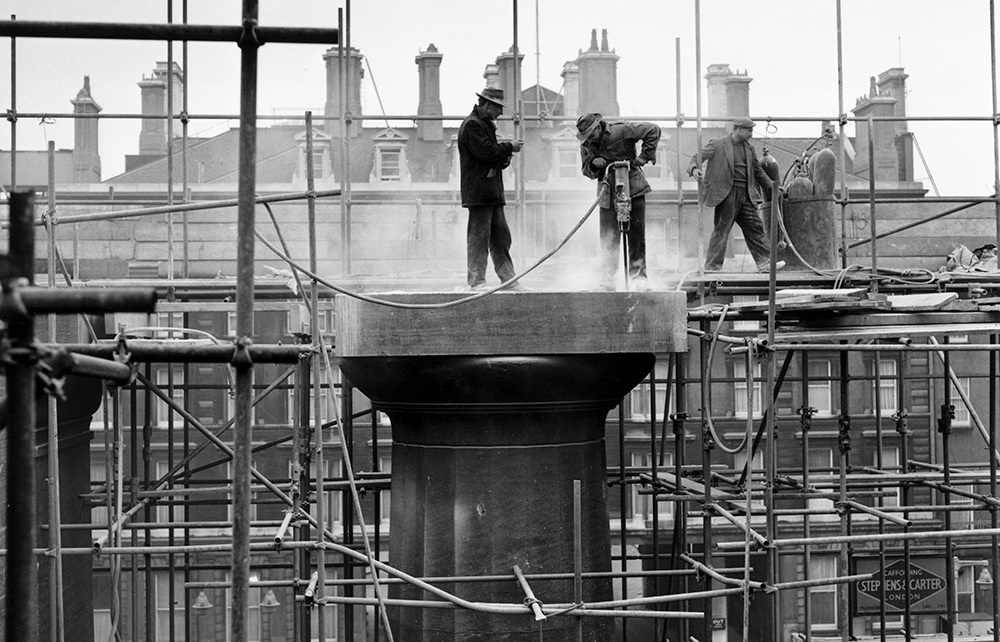The writer of contemporary history has a number of advantages over his colleagues who deal with the more distant past. It is not only that the profusion of media in recent decades supplies abundant first drafts of that history. There are also the twin forces of living witnesses and the author’s own memory. In this entertainingly written and generally even-handed account of roughly the first third of the reign of the late Queen – from her accession in 1952 to the arrival in Downing Street of Margaret Thatcher in 1979 – Matthew Engel deploys all of those forces.
In a narrative into which is woven the events of high politics in those years but is heavily, and refreshingly, reliant on the social history of the period, the author incorporates his own experiences and those of colleagues, friends and even his Herefordshire neighbours. The result is an immediately credible, and at times highly personal, picture, recognisable to anyone who has lived through all or part of the period, and an ideal primer for those too young to recall it who want to begin to understand why we are where we are.
Youth had the summer of love in 1967 and a summer of rioting in 1968
Engel divides his text into three tranches: the 1950s, 1960s and 1970s. He represents the first decade as one in which change proceeds at a slow burn. Britain is still a society of docile housewives, National Service, capital punishment, illegal homosexuality and bomb sites, all of which have gone within another ten years. The signs of change are clear by the late 1950s: the advent of rock and roll; the start of tower blocks, designed by utopian architects and embraced by rapacious property developers; the restriction of hanging to the most serious murders; the Wolfenden Report on homosexual law reform; the gradual expansion of opportunities and equality for women.
In the next decade all hell broke loose with the pace of change: by the end of the 1960s steam trains had gone; a motorway network was becoming established; the Beatles and the satire boom had been and gone; abortion and homosexuality were legal; mini skirts and frilly, floral shirts had become de rigueur; the tower blocks were already falling down; youth (much of it out of its brains on cannabis) had had the summer of love in 1967 and a summer of rioting in 1968.
The 1970s were pretty horrible: a design aesthetic from hell; the superabundance of cheap and nasty; an insidious attack on democracy by the trade unions that first of all brought down an incompetent Conservative government and then, five years later, an almost equally useless Labour one. The assault on democracy that was the decision to join the Common Market took place in 1973, was confirmed in a referendum in 1975, and caused strife and division for more than 40 years. The decade was one of rampant inflation (which was partly why the unions cut up so rough), of the brain drain, high taxation and racial tension.
Engel gives glimpses of how life would be in the future: the replacement of the grocer’s shop by the vast supermarket, the effective end of the British car industry, and the package holiday supplanting the week by the seaside. He describes how urban flight began to rural Britain, with people seeking second homes as boltholes, pricing local young couples out of the market. It was also the decade when many men finally left the land and sought jobs, and often poor living conditions, in towns.
As one would hope in a book of this nature, Engel brings his own views to bear, usually with wit, and at times with a pleasing eccentricity. One cannot but endorse his loathing of the architecture of the 1960s, which (gradually disappearing though some of it is) embodied and symbolised the apparently deliberately offensive change of the period. He catalogues the fine buildings that were destroyed because of the fetish of progress – the Coal Exchange and, of course, the Euston Arch. But ultimately people had enough. St Pancras was saved, and the inner London motorway network, of which the abominable Westway is the sole monument, was scrapped because of the horror it would inflict on those living nearby.
Engel also laments the wiping out of a part of our everyday history and culture caused by the decimalisation of the currency in 1971. He notes that, despite predictions to the contrary, affectionate nicknames such as ‘bob’ and ‘tanner’ have never been attached to the unloved, utilitarian decimal coinage. Similar cultural vandalism was attempted in 1974 on the historic counties. Some, such as Rutland, have staged a heroic fightback, and the Yorkshire’s East Riding has reclaimed something called ‘Humberside’.
Engel notes the television programmes that came to absorb the nation and is, as one would expect from a former editor of Wisden, good on sport; but there is little about the British cinema of the period, or its plastic art or classical music, which are lacunae in an otherwise all-embracing book.
A second volume is promised. Readers of this one will keenly await it, not least to see whether the rather sentimental tune about James Hanratty changes when it becomes clear that his DNA makes him without question the A6 murderer and not another victim of a wicked death penalty in a skewed criminal justice system.






Comments